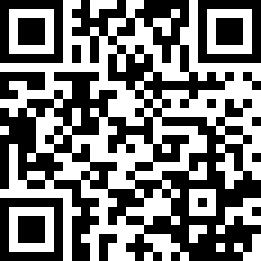
Lade die kostenlose Kindle-App herunter und lese deine Kindle-Bücher sofort auf deinem Smartphone, Tablet oder Computer – kein Kindle-Gerät erforderlich.
Mit Kindle für Web kannst du sofort in deinem Browser lesen.
Scanne den folgenden Code mit deiner Mobiltelefonkamera und lade die Kindle-App herunter.

OK
Bild nicht verfügbar
Farbe:
-

-
-
- Herunterladen, um dieses Videos wiederzugeben Flash Player
The Fright of Real Tears: Krzysztof Kieslowski Between Theory and Post-Theory Gebundene Ausgabe – 1. Dezember 1999
In this major new study Slavoj Zizek challenges both cognitivist-historicist accounts of cinema and conventional film theory. Arguing that the reading of Lacan operative in the '70s and '80s was particularly reductive, Zizek asserts that there is "another Lacan," in reference to whom film theory, cultural studies, and critical thought as such can be transformed and revitalized. He supports and expands this argument with an extensive reading of the work of Kieslowski and, in a substantial appendix, with a discussion of the relationship between Christianity, Gothicism and the "progressive digitalisation of our life-world."
- Seitenzahl der Print-Ausgabe240 Seiten
- SpracheEnglisch
- HerausgeberBRITISH FILM INST
- Erscheinungstermin1. Dezember 1999
- Abmessungen15.6 x 1.43 x 23.39 cm
- ISBN-100851707556
- ISBN-13978-0851707556
Produktbeschreibungen
Über den Autor und weitere Mitwirkende
Produktinformation
- Herausgeber : BRITISH FILM INST (1. Dezember 1999)
- Sprache : Englisch
- Gebundene Ausgabe : 240 Seiten
- ISBN-10 : 0851707556
- ISBN-13 : 978-0851707556
- Abmessungen : 15.6 x 1.43 x 23.39 cm
- Kundenrezensionen:
Informationen zum Autor

Slavoj Žižek, geboren 1949, ist Philosoph, Psychoanalytiker und Kulturkritiker. Er lehrt Philosophie an der Universität von Ljubljana in Slowenien und an der European Graduate School in Saas-Fee und ist derzeit International Director am Birkbeck Institute for the Humanities in London. Seine zahlreichen Bücher sind in über 20 Sprachen übersetzt. Im S. Fischer Verlag sind zuletzt erschienen »Absoluter Gegenstoß. Versuch einer Neubegründung des dialektischen Materialismus« (2016), »Ärger im Paradies. Vom Ende der Geschichte zum Ende des Kapitalismus« (2015), »Was ist ein Ereignis?« (2014) und »Das Jahr der gefährlichen Träume« (2013).
Kundenrezensionen
Kundenbewertungen, einschließlich Produkt-Sternebewertungen, helfen Kunden, mehr über das Produkt zu erfahren und zu entscheiden, ob es das richtige Produkt für sie ist.
Um die Gesamtbewertung der Sterne und die prozentuale Aufschlüsselung nach Sternen zu berechnen, verwenden wir keinen einfachen Durchschnitt. Stattdessen berücksichtigt unser System beispielsweise, wie aktuell eine Bewertung ist und ob der Prüfer den Artikel bei Amazon gekauft hat. Es wurden auch Bewertungen analysiert, um die Vertrauenswürdigkeit zu überprüfen.
Erfahren Sie mehr darüber, wie Kundenbewertungen bei Amazon funktionieren.Spitzenrezensionen aus anderen Ländern
Zizek yes many times drops shibboleths, quips and sarcasm but that's his style. What makes Zizek interesting to read however (no matter what he writes) is that he disrupts and tests the given symbolic order of things, What's That? that is what is usually shuved down our throats(via CNN,MTV,celebrated talk shows) as analysis or theoretical renderings that simply amount to the same "mantra" of views usually the liberal kind that is suspect of philosophic/cultural theory or "critique" especially when one so high powered a thinker as Zizek comes into the field of play, since you cannot understand him or say anything critically of him, He is deemed then"Dangerous".
In reality Zizek's sensibility is wholly suited to speak about Kieslowki's work, Lacan works quite well into getting behind what triggers desire,or wantings,fears and anxieties,where the "symbolic" order exists how it is continually nurtured through cultur as film. "The Decalogue" is one such film that tries to test the high symbolic order through the word of god or "g-d" and it inspires fear in all of us, we fear what we don't know, isn't that what religion (any of them) do they instill fear in us, because we don't know, or are told we don't know,"You want to know? follow us. . . " Kieslowski's language is,modern threadbare,very straightforward, we get wonderful views of Poland,Warsaw; yet he's able to instill a kind of "mystery" in the common shape of things;and this 'unknown' of the word of "g-d" or god; ten commandments,his own spirituality interfaces with our own which makes these ten short films quite powerful. Zizek I think is claiming a kind of "stasis" in Kieslowski,that we should view the "Decalogue" as one film not as ten little ones a distinction; an interesting view,very modern, and since his films have a kind of lean functionalism,things just simply move without gimmick unfolding the narrative logically.When viewed this way I think the ten shorts comes across in all its diverse richness;almost as if ten novellas all have inter-referenced schemes and threads that link them all in known and unknown way. Zizek explores various Lacanian topics without specifically mentioning them, as "sinthome", "object petit a" something you really don't need but needs to be there anyway,something we think of ourselves that needs to fit in someplace but cannot for it doesn't know what it is yet.Lacanian analysis claims to not expose what you don't know(as Freud) but merely affirms who and what you are right now in order to at least maintain some coherancy and stable moments within yourself.Like a young man's love for a mature woman he cannot have.The young boy has a series of unknowns he's working with,stalking her, watching her 'peeping-tom like'in this way the boy is not threatened and remains in the stable realm he knows best, his own bedroom where he masterbates;but soon this stability is brokened,with an actual meetings with the woman,like stepping on thin ice, you never know where you will fall in,,including your own suicide, Kieslowski I think often caps many of the "Decalogue"sequences too quickly,as the young boy simply stabbing himself for his oefish awkwardness and has no problem in utilizing gut-wrenching techniques in "Though shalt Not Kill" as the killing of the young boy who killed an innocent cabdriver.People simply die,or their lives robbed previously,as a concentration camp survivor, or fall into an abyss as the young boy not returning home with messages of his demise from an early computer.
If you keep with Zizek I think he delivers insights you will not find within the normal course of theoretical film critic discourse, all you get there is time and tested cliques,predictable "mantras" that really explain the complexity of films like a cooking show, "this was added to intensify. . . ", ". . . this moment will make shudder. . . ",like all you are looking for is what will I get for my money.


